COMMUNITY TO COMMUNITY: POLICY EQUITY FOR ALL
NEW PROJECTS
Community to Community (C2C) is excited to announce our inaugural Policy Fellows and Seed Grant Recipients for the coming 2023-24 academic year! C2C Policy Fellows and Seed Grant recipients are Northeastern faculty, post-doctoral students, or PhD students engaging in research-practice partnerships to conduct research with a city agency, state department, or community-based organization with the goal of using research evidence to change a policy or practice.
2023-2024 POLICY FELLOWS
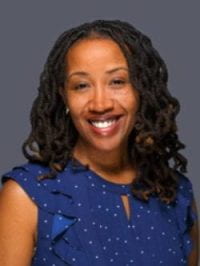
Associate Adjunct Professor of Public Policy
Mills College at Northeastern
Policy Partners:
Angela Bates, Executive Director
Nicodemus Historical Society
Gregory K. Eads, Superintendent
Nicodemus National Historical Site
Descendant Survey and Genealogy Database Project
This project seeks to enhance the involvement of African American descendants and prioritize efforts for a future genealogy database for Nicodemus, Kansas. Nicodemus was founded by formerly enslaved African Americans in 1877 and was declared a National Historic Site by Congress in 1996. This project aims to advance equity by creating a new descendant survey model that is applicable for other historic Black settlements, like Allensworth, California. In partnership with the Nicodemus Historical Society, the project aims to create an African American descendant survey model to track ancestral roots for reparative justice policymaking.
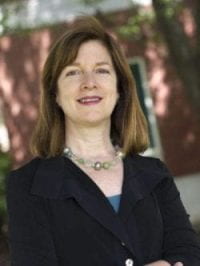
Professor of Public Policy and Urban Affairs
School of Public Policy and Urban Affairs
Policy Partners:
Daniel Hamilton, Sustainability Manager
Oakland Department of Public Works
Sofia Navarro, Interim Director
Oakland Economic & Workforce Development
Kannan Thiruvengadam, Director
Eastie Farm, Boston
An Initiative to Create Green Technology Career Ladders in Boston & Oakland
There is high growth potential in the green economy, broadly defined. The green economy comprises many employment categories and includes jobs that require only a high school education to those that require advanced degrees. The question is how to link young people in frontline communities to jobs in the green economy that pay decent wages and have advancement potential. This project will examine green economy career ladder programs to identify what works and why. Then, in collaboration with community organizations, high schools, community colleges, and universities we will develop at least one green technology career ladder program in Boston and in Oakland that serves youth in frontline communities.
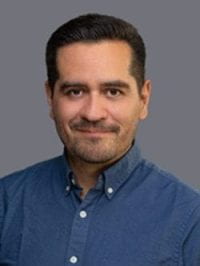
Assistant Professor
Fletcher Jones Program Chair, Sociology
Mills College at Northeastern
H. Shellae Versey, Assistant Professor, Department of Psychology
Fordham University, Bronx, NY
Policy Partner:
G.T. Reyes, Ph.D.
Associate Professor of Educational Leadership, CSU East Bay
Board Member, Homies Empowerment
Community Innovation Lab: Countering Gentrification
Dr. Shellae Versey and Mario Hernandez are co-developing a Community Innovation Lab which will serve as a central resource for academics, activists and policy makers working to counteract the harmful effects of gentrification. Given the rapid pace of gentrification and displacement in cities around the world, The Lab will serve as a collective hub and incubator lab for innovative ideas and creative solutions for preserving and improving communities facing the threat of displacement and other harmful consequences of gentrification. The Lab will examine both large-scale policy and community-led initiatives to characterize the full scope and success of anti-displacement measures. We plan to partner with Homies Empowerment, a grassroots, community-based organization based in Oakland that focuses on the city’s youth. Our goal is to evaluate their pilot efforts centered on a recent acquisition of a property in East Oakland that they are working to convert into affordable housing. This program may serve as a model for sustainable community-led land reclamation and anti-displacement strategies in communities around the country.
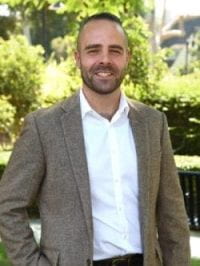
Associate Professor of Public Policy and Economics
School of Public Policy and Urban Affairs
Policy Partner:
William R. Dyson, Chairman
Racial Profiling Prohibition Project Advisory Board, State of Connecticut
Using Telemetric Mobility Data to Build a Better Early Warning System for Discrimination in Police Traffic Stops
States and localities face considerable challenges in producing, acting on, and sharing data on racially disparate treatment and outcomes in traffic enforcement. While many states require police to collect data on the race of the drivers involved in traffic stops, they often lack the capacity to analyze it. Best practices rely on complex statistical tests largely due to a lack of available data on driver demographics. This project develops a new methodology by leveraging “big data” on telemetric mobility patterns. This project will engage with state and local policing agencies in the Northeast to assist in their collection of race/ethnicity in traffic stops and aide in their development of data-driven early warning systems to identify disparities.
2023-2024 SEED GRANT RECIPIENTS
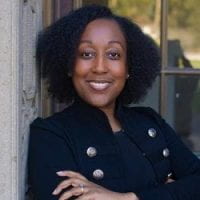
Assistant Adjunct Professor of Education
Mills College at Northeastern
Policy Partners:
Mills at Northeastern Upward Bound
Alameda County EMS Corps
Motivating Innovators
Stand In Peace
Infinity Investments
#Buildwealth Movement™
Bay Area Black Voices: Employment Outcomes of the Black Labor Force in The San Francisco Bay Area
Research suggests it is important to understand the impact of employment trends on the workforce to affect policy, resource distribution, and expand income opportunities for our most vulnerable citizens (Bohn, S., & Thorman, T., n.d.). This qualitative study investigates employment trends for the Black labor force in the San Francisco Bay Area and the role of empowerment learning in helping to improve economic outcomes for African-Americans. Although the San Francisco Bay Area is noted for its global diversity and tech innovation spaces, income inequality exists across race and gender, resulting in significant economic insecurity for those most impacted (Economic Policy Institute, n.d.). The unit of analysis for this study is individuals who identify as African-American and earn their living as a member of the San Francisco Bay Area workforce. A sample of 10 adults between the ages of 18 and 55 will inform the findings of this study. Triangulated data includes 45-minute semi-structured interviews, a Google Form questionnaire, and reflection memos written by the researcher. Key staff from local community-based organizations (CBOs) will also participate in a 45-minute interview designed to glean information to inform organizational policy decisions focusing on improving economic outcomes for African-Americans. This study has implications for the research needs of CBOs, higher education institutions concerned about improving workforce and innovation opportunities for the most vulnerable citizens in urban areas, career technical education (CTE) programs, secondary school teacher preparation programs, and local employment civil rights policy.
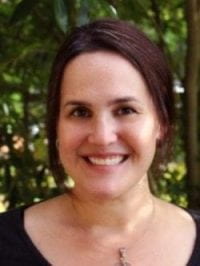
Assistant Professor
School of Architecture, College of Arts, Media, and Design
Policy Partner:
Bianca Bowman, Climate Justice Coordinator
GreenRoots
Refuge: Community-Guided Design Guidelines for Extreme Heat and Green Space Inequity in Chelsea, MA
Extreme heat widens spatial and health inequities as the brunt of heat islands, flooding, and air pollution fall on low-income neighborhoods and communities of color which often also lack parks and urban tree canopy that can mitigate these environmental effects. Prioritizing public space improvements that provide shade and cooling in the summers and opportunities for year-round activities should be prioritized as a key civic infrastructure. This proposal, based in Chelsea, MA, with GreenRoots as a partner, seeks to advance best practices for public space, shade, and cooling as a civic resource and means towards climate justice.
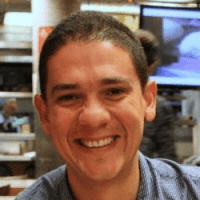
Assistant Teaching Professor
Khoury College of Computer Sciences
Northeastern University Bay Area
Aparna Krishnan,
Master in Computer Science Student, PhD applicant
Northeastern University, Bay Area
Policy Partners:
Sonoma County Women’s Recovery Services
Ohlhoff House Addiction Recovery, San Francisco
Interactive Visual Exploration of opioid exposure on Preterm Births in Oakland, California
Preterm birth rates are a leading cause of newborn morbidity and mortality in the world. In 2021,10.5% of the live births in the US were preterm, a number that has been increasing since 2015. This increase is associated with long-term health problems such as cognitive impairment, development delays, and chronic health conditions. Moreover, preterm birth medical costs were four times more than those of term births. This condition is aggravated by the fact that communities of color tend to have bigger preterm birth rates in the US which means that lower income families are facing these higher medical costs. This project aims to enable decision and policy makers to extract insights related to preterm birth data in Oakland, California, and other communities. We will leverage the expertise of years of collaboration with the Kangaroo Foundation, our external partner, while inviting collaboration from other local partners and data sets to better address challenges faced by Oakland communities. Facilitating the extraction of insights from the research by policy makers is aimed to support data-based policies to improve public health in the region.

Assistant Adjunct Professor
Public Health and Health Equity Program
Policy Partner:
Guido Persicone, Planning Manager
City of East Palo Alto
Understanding the Role of Tobacco Control in Community Health for Underrepresented Groups
Public health and urban planning share social justice concerns related to equity and access to essential services. I study urban planning strategies to aid tobacco control and demonstrate that there is a direct relationship between design and livability. Public health advocates, through their involvement in the creation of nonbinding “comprehensive” plans, affect land use agendas. Clean air with smoke-free spaces and tobacco-free green spaces is a determinant of health that has generated community activity to pursue changes in tobacco-use policies. My research aims to understand how communities can ensure that their health goals are not outclassed by competing interests when legislation is drafted to implement goals in the “comprehensive” plan.
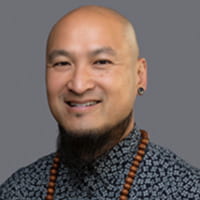
Professor & Program Director of Educators for Liberation,
Justice, and Joy (ELJJ) Teacher Education, Mills College at Northeastern
Policy Partners:
Civic Design Studio
HKIT architects
MidPen Housing
Laney College
Oakland Unified School District
Creative Industry Pathway and the Future of Oakland
This proposal seeks to examine the impact of a community-based, high school and community college creative industries pathway program. Partnering with Civic Design Studio, an organization that specializes in cultural impact projects; “large-scale public displays, cultural celebrations and multigenerational design build projects,” this study seeks to understand how we can support workforce development in the creative industries. The goal is to introduce teen and young adult artists to creating multimodal public art that incorporates various techniques (painting, illustration, digital design, mixed media, digital fabrication, and more) with industry partners in housing and architecture. Utilizing a participatory action research methodology, data will be collected from key stakeholders to answer the question: What extent does industry partnerships support authentic learning and workforce development in the creative industries?
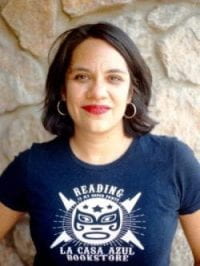
Associate Professor and Director
Latinx, Latin American and Caribbean Studies
Policy Partner:
Liz Sweet, Executive Director
Massachusetts Immigrant and Refugee Advocacy Coalition
Assessing Massachusetts Immigration Legal Service Capacity
Officially, Massachusetts is the home to over 1 million immigrants, making up nearly 18% of all Massachusetts residents (Migration Policy Institute 2021; American Immigration Council 2020). These numbers, however, are increasing and the sending countries are varying. While nearly 500,000 immigrants arrived after 2010, just between May and August 2022, over 2000 immigrants arrived from countries that differ from those historically represented in Massachusetts including Venezuela, Colombia, and Peru, as well as Guatemala and Honduras. MA immigration legal service providers, however, have long known about the growing and changing immigrant population and it is common knowledge that the supply of legal services for immigrants lags behind the demand in the Bay State. Using a mixed-methods approach, this project aims to understand and assess the capacity of immigration legal services in Massachusetts in order to support the Massachusetts Immigrant Refugee Advocacy (MIRA) coalition and their work in terms of funder engagement, funding coordination and alignment, member-led initiatives and strategic messaging.
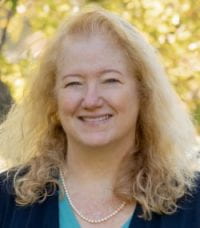
Professor of Health Sciences
Department of Health Sciences, Bouvé College of Health Sciences
Michael Arnold Mages, Assistant Professor, College of Arts Media and Design
Herman Saksono, Assistant Professor, Bouvé College of Health Sciences and Khoury College
Farzad Noubary, Associate Clinical Professor, Bouvé College of Health Sciences
Policy Partner:
Boston Public Health Commission
TEAM Health: Technology-Enhanced Approaches to Mental Health Navigation in Families with Young Children
Social/emotional difficulties among children 1-8 years are associated with future psychopathology and other impairments. However, only 25% in need receive services, with underrepresented minorities experiencing worse gaps. Family Partners (FP) are paraprofessionals and parents who raised children with health/mental health difficulties. Working with the Boston Public Health Commission, we will utilize user-centered, participatory design approaches to develop smartphone technology to enhance and personalize care coordination and family support provided in a model we previously evaluated pairing FPs with mental health clinicians. Development of innovative technological tools has potential to decrease gaps in screening, referrals, and services and to promote sustainability.

Assistant Professor of the Practice
Mills College at Northeastern
Policy Partner:
Yeen Lama, Associate Director of Research
Caring Across Generations
Care Can’t Wait
The research will evaluate the impact of American Rescue Plan Act (ARPA) funding on care workers and unpaid family caregivers in California. Specifically, this research will evaluate: (1) caregiver workforce development efforts to streamline training, attract new workers, and promote career advancement in the field with the end goal of improving patient care; (2) the impact of a multi-year state effort to raise the pay of caregivers serving people with developmental disabilities; and (3) whether supportive services and training offered by the Home and Community-Based (HCBS) spending plan alleviates unpaid caregivers’ economic, physical, and emotional burden.

Future Faculty Fellow, Management & Organizational Development
D’Amore McKim School of Business
Policy Partner:
Wendy Zinn, Chief of Partnerships & Social Responsibility
YMCA OF GREATER BOSTON
Determining the Organizational Social Conditions That Enable Leaders to Surpass Precarious Leadership Roles
Research in the area of job design suggests that positions can be restructured in such a way as to alleviate gender and racial disparities, which might be implicitly built into job roles (Kalev, 2009). For leaders from historically excluded groups (i.e., women; BIPOC) high-risk, and often precarious leadership roles such as in non-profit organizations may offer the critical career breaks that enable them to gain the credibility and visibility needed for advancement and future career success. As such, while risky, these roles may still serve as a pathway to greater career upward mobility; especially for employees whose social group has been historically relegated to the bottom of the economic ladder. Building on research on the glass cliff, the purpose of the proposed study is to uncover the often-overlooked conditions around organizational support that enable leaders who take such roles to be more successful and effective in contributing towards organizational goals. This study seeks to augment organizational practices within non-profit, community-based organizations so that non-profit leaders may be more effective in serving their constituents and community.
